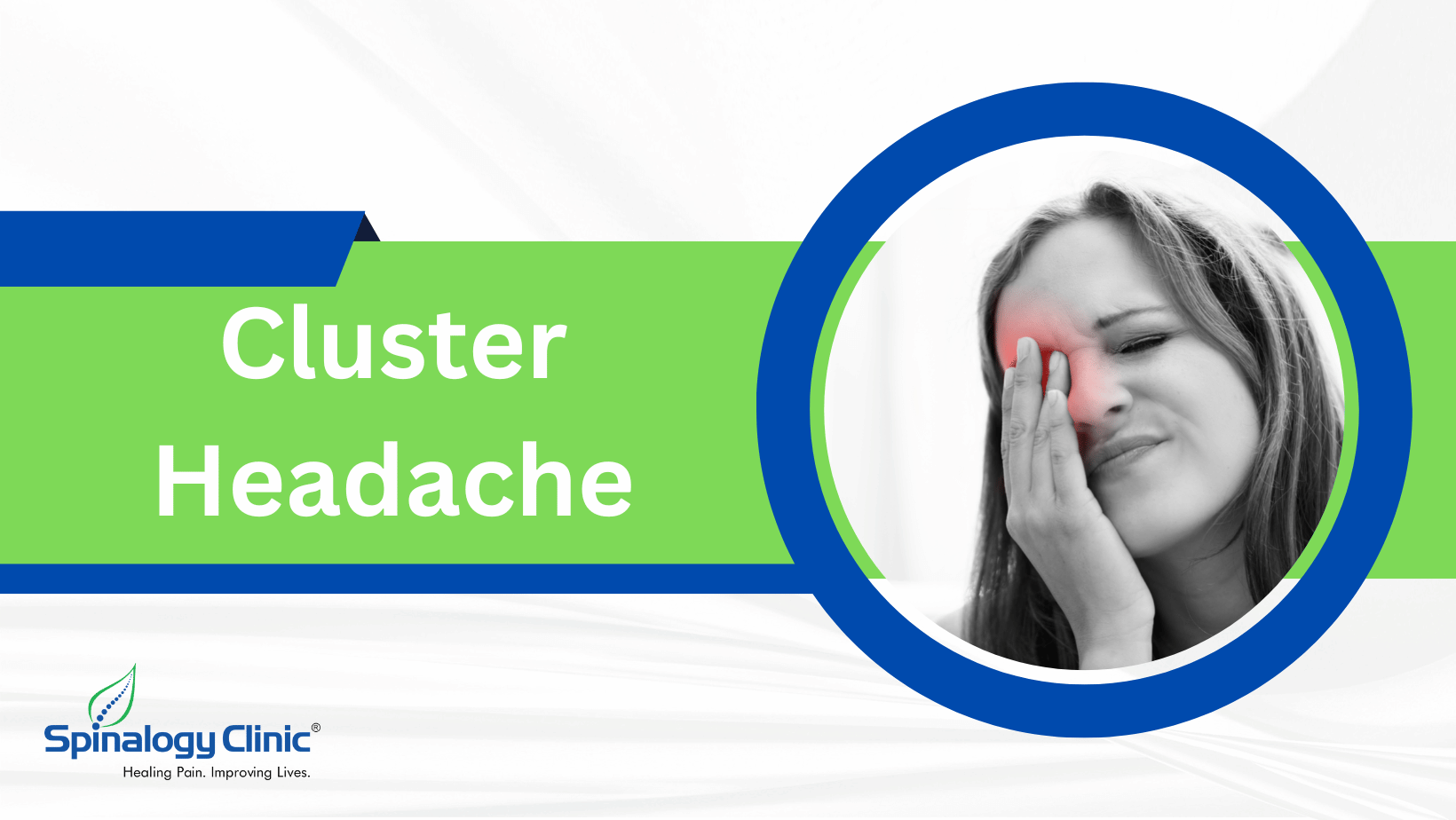Cluster Headaches
Cluster headaches are relatively small but extremely painful headaches that you can get every day for weeks or months at a time. Pain from cluster headaches can be very extreme and severe. Cluster headaches can occur at any age but are most common between adolescence and middle age.
What causes cluster headaches?
The cluster headaches are caused due to the dilation, or widening of the blood vessels that help to supply the blood to your brain and face. This dilation puts pressure on the trigeminal nerve, which transmits sensations from the face to the brain. But it is unknown why this dilation occurs.
Some researchers believe that the abnormalities in the hypothalamus, a small area of the brain that regulates the blood pressure, sleep, body temperature, and the release of hormones, may cause cluster headaches.
Types of cluster headaches
There are mainly two types of cluster headaches:
Episodic cluster headaches occur regularly between one week and a year that are followed by the headache free period of around one month or more.
Chronic cluster headaches occur regularly for more than one year, followed by a headache free period that lasts for around a month.
Symptoms of cluster headaches
Cluster headache pain mainly occurs on one side of the head, but it can switch sides in some people. This one sided pain is described as constant and deep burning or piercing pain. With time pain can spread to your forehead, temples, nose, teeth, or even may be to your shoulders. Other symptoms of cluster headaches include:
- Nausea
- A runny nose
- Eye Redness
- A droppy eyelid
- Sensitivity to light
- Restlessness or agitation
Treatment for cluster headaches
Medication is the common treatment used to cure cluster headaches. In rare cases, if the pain doesn’t stop and increases with time, your doctor may recommend surgery.
Pain medication
Pain medication is used when the pain has just begun. This includes:
- Oxygen: If you’ll get 100% oxygen to breathe, it can help you overcome headache pain.
- Triptan Medication: These nasal spray medications called sumatriptan, or other triptan medications helps to constrict blood vessels, which can help you ease your pain.
- DHE: DHE ( dihydroergotamine) is a injected medication, that can often relieve cluster headache within five minutes of its use. Note: DHE cannot used with sumatriptan.
Preventive Medication
Preventive medications are used to stop headaches even before they start. These medications include:
- Blood pressure medications, such as propranolol can be used to relax blood vessels.
- Muscle relaxants can be used such as baclofen.
- Antidepressant medications
- Lithium Carbonate
- Anti-seizure medications, such as topiramate.

_1742973131.png)
_1742634080.png)

